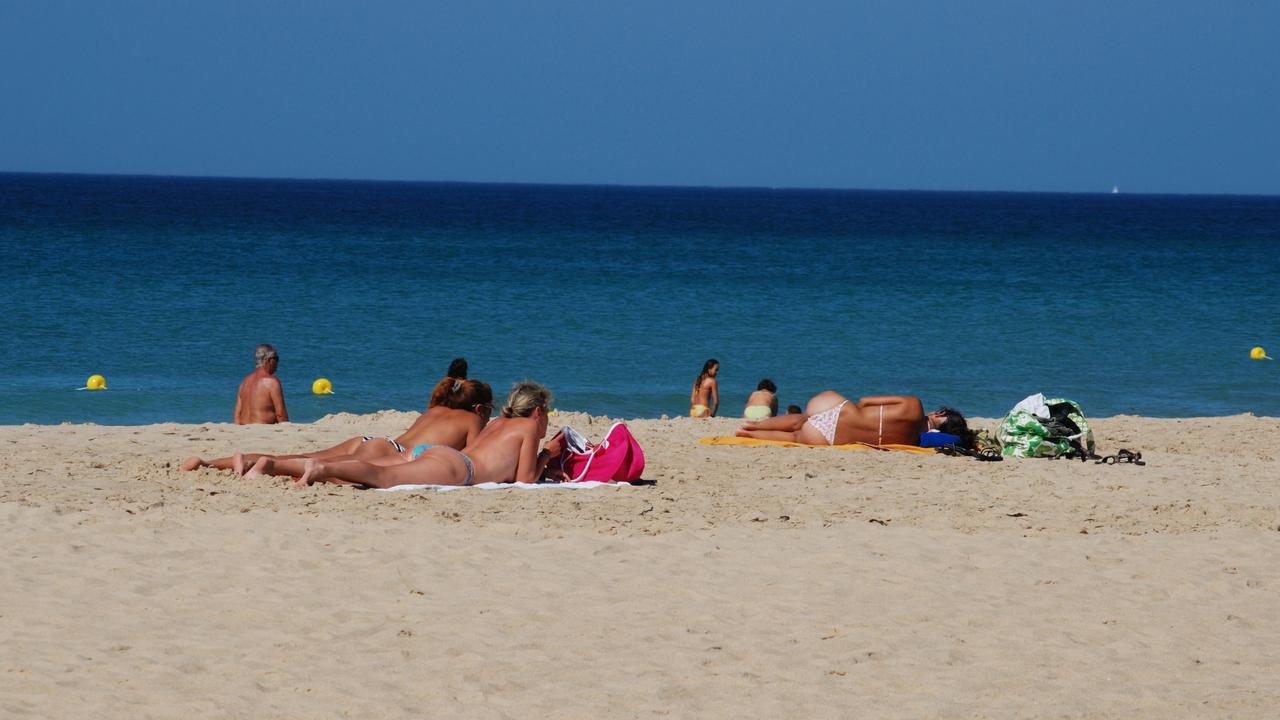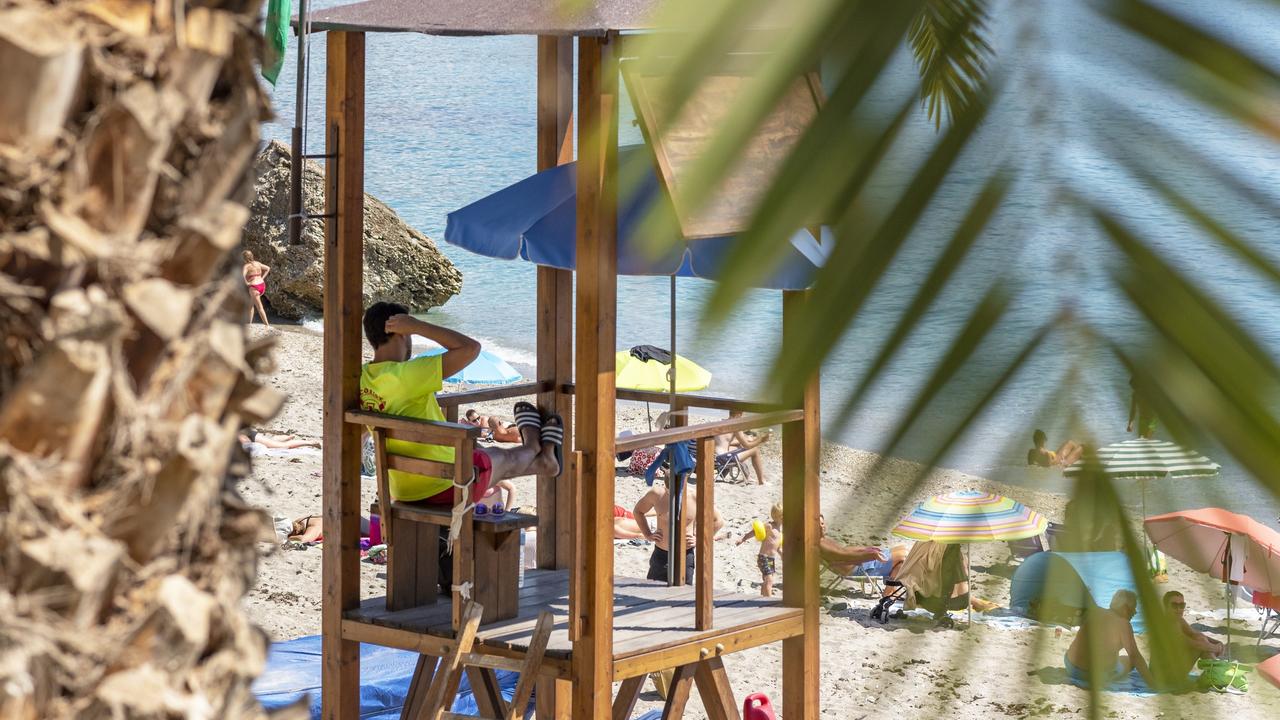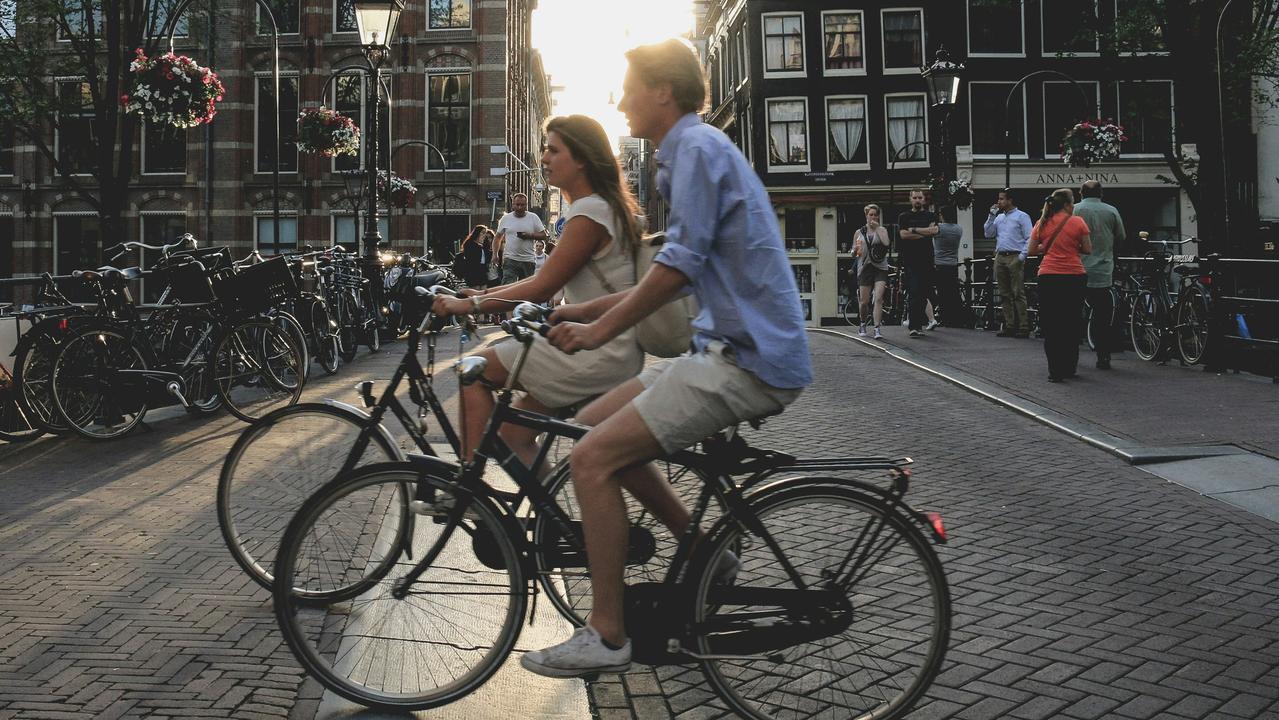Rules for avoiding embarrassment on Spanish beaches
The fastest way to out yourself as a tourist is by doing this act on a Spanish beach, even though we don’t mean to.
From the “mañana, mañana” expression to having lunches that morph into dinners (to sipping a coffee at 5pm and feeling like your day is only just getting started), Spain has a laid back reputation.
But for a country of chill repute, its beaches require an advanced diploma in diplomacy to navigate. Or that’s how it can sometimes feel. In fact, there’s one crucial sunbathing skill you need to learn before you visit the Iberian Peninsula. That skill? Knowing how to act nonplussed about topless sunbathing.
This is just one of many beach etiquette rules you need to follow in Spain. To help you on your way to unbothered tinto de verano bliss, here are 12 rules you need to live by.
Don’t panic when your friends take their tops off

The fastest way to out yourself as an Australian (or worse, an American), is to look highly uncomfortable when your Spanish friends go topless. Though your determination not to come across as a pervert is commendable, deliberately avoiding their gaze and fixing your eyes about two metres above their head when talking to them is kind of weird too.
Don’t leave your car keys wrapped inside your towel on the sand

As I found out the hard way, in the middle of winter on Cadiz’ Cortadura beach, if you leave your valuables in a towel on the sand then one of two things will happen. They’ll either get stolen, or some concerned citizen will pick them up and hand them in to the lifeguard tower, for fear that they will get stolen. Either way: you’ll be panicking.
Bring an umbrella
You have to hand in your Spanish passport if you don’t bring an umbrella (preferably a tobacco company themed one at that) to the beach. Trust me.
Always bring a couple of euros for parking
Especially in summer, you can guarantee all the free spots near the beach on the road will be taken, and you’ll have to park in one of the vacant land lots, where private landowners will typically charge you two euros (cash only, thrown in a bucket) for your troubles.

Beware the wind
Particularly in the south of Spain, you’ve got to check the weather forecast before you go to the beach. Not for rain: you’re usually pretty safe on that front. But for wind. There are two types, poniente and levante. If there’s a strong levante wind, forget about going to the beach – maybe head to Tarifa, the windsurfing capital of the world, instead.
Bring a bocadillo de tortilla

If you want to go full espanol, bring a “Spanish omelette sandwich” or a bocadillo de jamon (ham sandwich). Just make sure you pack it into an esky (alongside some tinto de verano and cruzcampo beers) so it’s nice and cold.
Learn how to say ‘no gracias’
If you don’t want to buy a new sarong, towel or pair of thongs every 15 minutes, learn how to say “no thank you”. There will also be people selling cold drinks, so learn how to say “si gracias” and “cuanto es” (how much?) too.

Find a restaurant a couple of streets back from the beach
If your stomach is really rumbling, find an espeto place to try charred sardines cooked over a wooden boat. Bonus tip: oily almonds and fresh tuna (caught using the traditional almadraba method, if you’re in the south) are usually to die for, too. Just walk a couple of streets back from the beach into town and you’re sure to find something good value.

Don’t bother trying to surf at popular beaches in summer
In Australia, the beach gets shared in summer. The worst that can happen is lifeguards might yell at you if you get too close to the flags on a surfboard. In Spain, at popular beaches like El Palmar, the entire beach is often closed to surfers in summer, with the whole area dedicated to swimmers. Your only hope as a surfer is a rare ‘bandera roja’ (red flag) day when the beach is shut for dangerous conditions. Even then though, I’ve heard of accounts of surfers being ordered out of the water by police at places like La Barceloneta in Barcelona, for their own safety.

Embrace chiringuito life
It might feel weird for there to be a restaurant on the sand, but it is what it is. Have a coffee; have a few cocktails. You’re on holiday.
Don’t pee in the ocean
I doubt this is possible to enforce, but apparently in Vigo, Galicia, it’s illegal to urinate in the ocean, as per the local municipality’s laws. Further dubious “don’t” rules that fit into this category are: wearing swimwear off the sand and into the streets, and drinking alcohol on the beach.
More Coverage
Bring a water bottle for the car
Not only might you get thirsty in the inevitable summer highway traffic jam, but from my experience, fewer beaches in Spain have shower facilities than they do in Australia, so sometimes there isn’t anywhere to rinse your feet.
This story originally appeared on Escape and is republished here with permission





